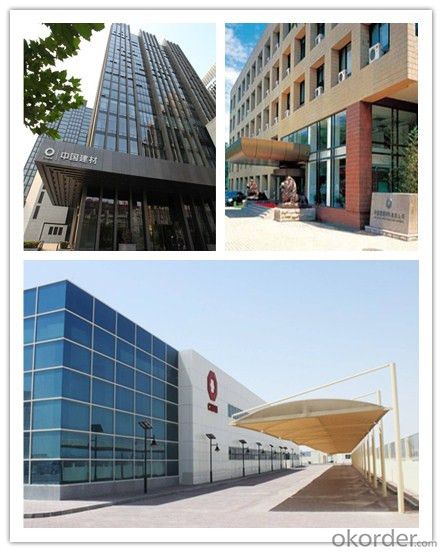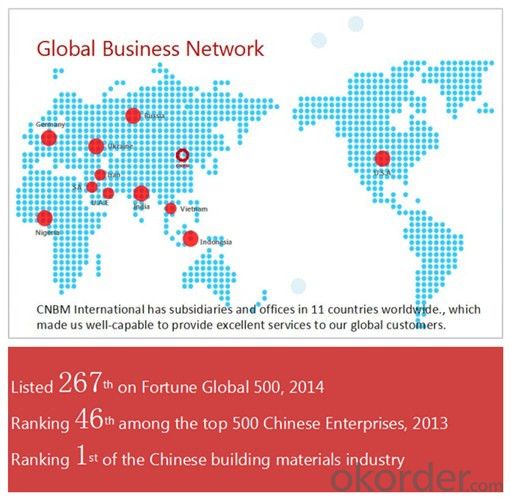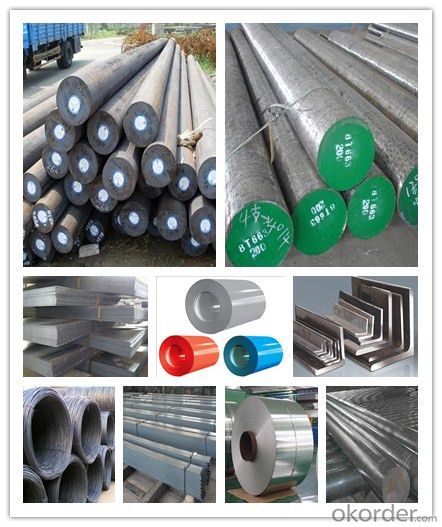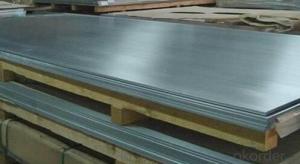Electro Galvanized Steel Coils Plate Used on Boat
- Loading Port:
- Tianjin
- Payment Terms:
- TT OR LC
- Min Order Qty:
- 5 m.t.
- Supply Capability:
- 10000 m.t./month
OKorder Service Pledge
OKorder Financial Service
You Might Also Like
Item specifice
Electro Galvanized Steel Coils Plate Used on Boat
Specification of Electro Galvanized Steel Coils Plate Used on Boat
| goods | Hot dip galvanized steel coil and sheet |
| Technical Standard: | JIS 3302 / ASTM A653 / EN10143/EN10327 |
| Grade | DX51D / DX52D/ DX53D/ S250,280,320GD |
| Width | 500/650/726/820/914/1000/1200/1219/1220/1250mm |
| Thickness | 0.17-1.6mm (0.25-0.45mm is the most advantage thickness) |
| Type of coating: | galvanized |
| Zinc coating | Z60-120g/m2 |
| Surface treatment | chromed / skin pass/ oiled /un oiled /slightly oiled/ dry |
| Surface structure: | zero spangle / minimized spangle / regular spangle/ big spangle |
| MOQ | 5 Tons |
| Package: | Properly packed for ocean freight exportation in 20''containers |
| Price terms | FOB,CFR,CIF,CPT.CNF,CIP |
| Payment terms | 30%TT in advance+70% TT or irrevocable 70%L/C at sight |
| delivery time | 7days after receipt of 30% TT |
Details of Electro Galvanized Steel Coils Plate Used on Boat
| Material | Tensile test | ||||||
| Rel | Rm (MPa) | Elongation | |||||
| (MPa) | 1.8~<2.0< span=""> | 2.0~<2.5< span=""> | 2.5~<3.2< span=""> | 3.2~<4.0< span=""> | ≥4.0 | ||
| SPHC | ≥270 | ≥29 | ≥30 | ≥31 | ≥32 | ≥32 | |
| SPHD | ≥270 | ≥32 | ≥33 | ≥35 | ≥37 | ≥39 | |
| SPHE | ≥270 | ≥33 | ≥35 | ≥37 | ≥39 | ≥41 | |
| SS330 | ≥205 | 330~430 | ≥26 | ||||
| SS400 | ≥245 | 400~510 | ≥24 | ||||
| SAPH370 | ≥370 | ≥255 | ≥32 | ||||
Supplier of Electro Galvanized Steel Coils Plate Used on Boat
CNBM International Corporation is the most import and export platform of CNBM group(China National Building Material Group Corporation) ,which is a state-owned enterprise, ranked in 270th of Fortune Global 500 in 2015.
With its advantages, CNBM International are mainly concentrate on Cement, Glass, Iron and Steel, Ceramics industries and devotes herself for supplying high quality series of refractories as well as technical consultancies and logistics solution.


Delivery of Electro Galvanized Steel Coils Plate Used on Boat
Packaging Detail | Sea worthy packing /as per customer's packing instruction |
Delivery Detail | 15 ~ 40 days after receiving the deposit |
Products Show

FAQ:
Are you a trading company or manufacturer? | Manufacturer |
What’s the MOQ? | 3 metric ton |
What’s your delivery time? | 15-35 days after downpayment received |
Do you Accept OEM service? | Yes |
what’s your delivery terms? | FOB/CFR/CIF |
What's the Payment Terms? | 30% as deposit,70% before shipment by T/T |
Western Union acceptable for small amount. | |
L/C acceptable for large amount. | |
Scrow ,Paybal,Alipay are also ok | |
Why choose us? | Chose happens because of quality, then price, We can give you both. Additionally, we can also offer professional products inquiry, products knowledge train (for agents), smooth goods delivery, excellent customer solution proposals. |
What's your available port of Shipment? | Main Port, China |
What’s your featured services? | Our service formula: good quality+ good price+ good service=customer's trust
|
Where are your Market? | Covering more than 160 countries in the world |
- Q:How is weathering steel used in outdoor structures?
- Weathering steel, also known as Corten steel, is commonly used in outdoor structures due to its unique properties. It forms a protective rust-like layer on its surface, which not only enhances its aesthetic appeal but also acts as a barrier against further corrosion. This makes weathering steel a popular choice for outdoor sculptures, bridges, building facades, and other structures that are exposed to the elements. Additionally, its durability and low maintenance requirements make it a cost-effective and sustainable option for long-lasting outdoor constructions.
- Q:How does special steel perform in chemical processing applications?
- Special steel is widely used in chemical processing applications due to its excellent performance and unique properties. One of the key advantages of special steel in chemical processing is its high resistance to corrosion. This type of steel is specifically designed to withstand harsh chemical environments, making it highly reliable and durable. In chemical processing applications, where corrosive substances are present, special steel provides superior protection against corrosion compared to other materials. It exhibits exceptional resistance to acids, alkalis, and various chemical compounds, ensuring the integrity and longevity of equipment and components. Moreover, special steel offers excellent mechanical properties, such as high strength and toughness, which are essential in chemical processing applications. It can withstand high temperatures, pressure, and mechanical stresses commonly encountered in these environments. Its robustness and ability to maintain structural integrity under extreme conditions make it a preferred choice for critical components like reactors, vessels, and piping systems. Special steel also contributes to the overall efficiency and safety of chemical processing operations. Its resistance to scaling and fouling reduces the risk of contamination and blockages, minimizing downtime for cleaning and maintenance. This results in improved productivity and cost-effectiveness. Furthermore, special steel is often selected for its hygienic properties, making it suitable for applications in the food and pharmaceutical industries. It is easy to clean and sanitize, ensuring the highest levels of product purity and compliance with industry regulations. In summary, special steel performs exceptionally well in chemical processing applications. Its corrosion resistance, mechanical strength, thermal stability, and hygienic properties make it an ideal choice for equipment and components, enhancing the reliability, efficiency, and safety of chemical processing operations.
- Q:What are the different construction grades of special steel?
- There are several different construction grades of special steel, including but not limited to ASTM A36, ASTM A572, ASTM A514, and ASTM A588. These grades vary in their mechanical properties and are specifically designed to meet different construction requirements, such as strength, durability, or corrosion resistance.
- Q:What are the properties of ultra-high-strength alloy steel?
- Ultra-high-strength alloy steel possesses exceptional strength, hardness, and toughness, making it ideal for demanding applications. Due to its high carbon content and alloying elements such as chromium, nickel, and molybdenum, it exhibits outstanding resistance to wear, corrosion, and heat. Additionally, its superior mechanical properties enable it to withstand heavy loads, impacts, and extreme environments, making it a preferred choice in industries like aerospace, automotive, and construction.
- Q:What are the different types of special steel coatings?
- Various special steel coatings exist to enhance the properties and performance of steel. Some commonly used types include: 1. Galvanized Coatings: These coatings involve applying a layer of zinc to the steel surface. Galvanized coatings provide excellent corrosion resistance, making them suitable for outdoor applications and structures exposed to harsh environments. 2. Epoxy Coatings: Known for their exceptional durability and chemical resistance, epoxy coatings protect steel from corrosion, abrasion, and chemical exposure. They can be single or multi-layer systems, extending the steel's lifespan and performance. 3. Powder Coatings: Powder coatings, applied electrostatically and cured under heat, offer excellent protection against corrosion, impact, and UV damage. They come in various colors and finishes, making them popular for aesthetic purposes. 4. Thermal Spray Coatings: These coatings involve applying molten particles onto the steel surface using a thermal spray gun. Ceramic coatings are the most common type, providing enhanced wear resistance, thermal insulation, and corrosion protection. 5. PVD Coatings: Physical Vapor Deposition (PVD) coatings deposit thin layers of metallic or ceramic materials onto the steel surface through vaporization. PVD coatings improve hardness, wear resistance, and reduce friction. 6. Organic Coatings: Polyurethane or acrylic coatings, known as organic coatings, protect against corrosion, UV damage, and chemical exposure. They are commonly used in architecture, automotive parts, and industrial equipment. 7. Chrome Plating: Chrome plating involves depositing a layer of chromium onto the steel surface. This coating offers excellent corrosion resistance, hardness, and a decorative finish. It is often used in automotive applications and for decorative purposes. Selecting the appropriate special steel coating is crucial, considering the specific requirements of the steel component or structure, including corrosion resistance, durability, aesthetics, and environmental factors.
- Q:What are the environmental impacts of using special steel?
- Special steel can cause several environmental effects. To begin with, the extraction of raw materials like iron ore and coal for special steel production results in deforestation, destruction of habitats, and loss of biodiversity. This mining process also releases pollutants into the air, soil, and water, contributing to pollution. Special steel production also emits greenhouse gases, especially carbon dioxide (CO2), during manufacturing. The high temperatures required to melt and shape the steel, along with the energy-intensive processes involved, lead to significant CO2 emissions that contribute to climate change. Moreover, the transportation of special steel has its own environmental consequences. The shipping and logistics involved in transporting the steel from production facilities to end-users generate additional greenhouse gas emissions, air pollution, and fuel consumption. Additionally, the disposal of special steel products at the end of their lifecycle poses environmental challenges. If not properly recycled or disposed of, steel products can end up in landfills, taking up valuable space and potentially releasing harmful substances into the environment. Despite these environmental impacts, it is important to acknowledge that special steel is frequently used in various industries due to its durability, strength, and resistance to corrosion. Efforts are being made to mitigate these impacts by adopting cleaner production methods, such as recycling and utilizing renewable energy sources in the steel manufacturing process. Additionally, initiatives like carbon capture and storage are being explored to reduce greenhouse gas emissions from steel production. In conclusion, although special steel offers numerous benefits, it is crucial to balance these advantages with the need to minimize its environmental impacts through sustainable production and responsible disposal practices.
- Q:What are the properties of high-speed tool steel?
- High-speed tool steel is known for its exceptional hardness, wear resistance, and ability to retain its cutting edge even at high temperatures. It also exhibits excellent toughness, strength, and dimensional stability, making it ideal for applications that involve high-speed machining, cutting, or drilling operations. Additionally, high-speed tool steel has good heat resistance and can withstand thermal shock, making it suitable for use in demanding industrial environments.
- Q:What are the properties of high-speed stainless steel?
- High-speed stainless steel possesses several key properties that make it highly desirable for various applications. Firstly, it exhibits exceptional corrosion resistance, ensuring its longevity and reliability even in harsh environments. Secondly, it has excellent strength and durability, allowing it to withstand high temperatures and heavy loads without deformation or failure. Additionally, high-speed stainless steel offers good machinability, enabling ease of fabrication and precise shaping. Lastly, it maintains its sharpness and cutting efficiency even under extreme heat and friction, making it ideal for cutting tools and high-speed machinery.
- Q:What are the different cutting techniques used for special steel?
- Some of the different cutting techniques used for special steel include abrasive cutting, laser cutting, waterjet cutting, and flame cutting.
- Q:What are the common challenges in machining special steel?
- Some common challenges in machining special steel include its high hardness, toughness, and abrasiveness, which can lead to increased tool wear and reduced cutting speeds. Additionally, special steels often have low thermal conductivity, making heat dissipation a challenge during machining. The presence of alloying elements in special steel can also result in reduced machinability and increased cutting forces. Therefore, special attention needs to be paid to selecting appropriate cutting tools, optimizing cutting parameters, and implementing effective cooling and lubrication techniques to overcome these challenges.
1. Manufacturer Overview |
|
|---|---|
| Location | |
| Year Established | |
| Annual Output Value | |
| Main Markets | |
| Company Certifications | |
2. Manufacturer Certificates |
|
|---|---|
| a) Certification Name | |
| Range | |
| Reference | |
| Validity Period | |
3. Manufacturer Capability |
|
|---|---|
| a)Trade Capacity | |
| Nearest Port | |
| Export Percentage | |
| No.of Employees in Trade Department | |
| Language Spoken: | |
| b)Factory Information | |
| Factory Size: | |
| No. of Production Lines | |
| Contract Manufacturing | |
| Product Price Range | |
Send your message to us
Electro Galvanized Steel Coils Plate Used on Boat
- Loading Port:
- Tianjin
- Payment Terms:
- TT OR LC
- Min Order Qty:
- 5 m.t.
- Supply Capability:
- 10000 m.t./month
OKorder Service Pledge
OKorder Financial Service
Similar products
New products
Hot products
Related keywords































